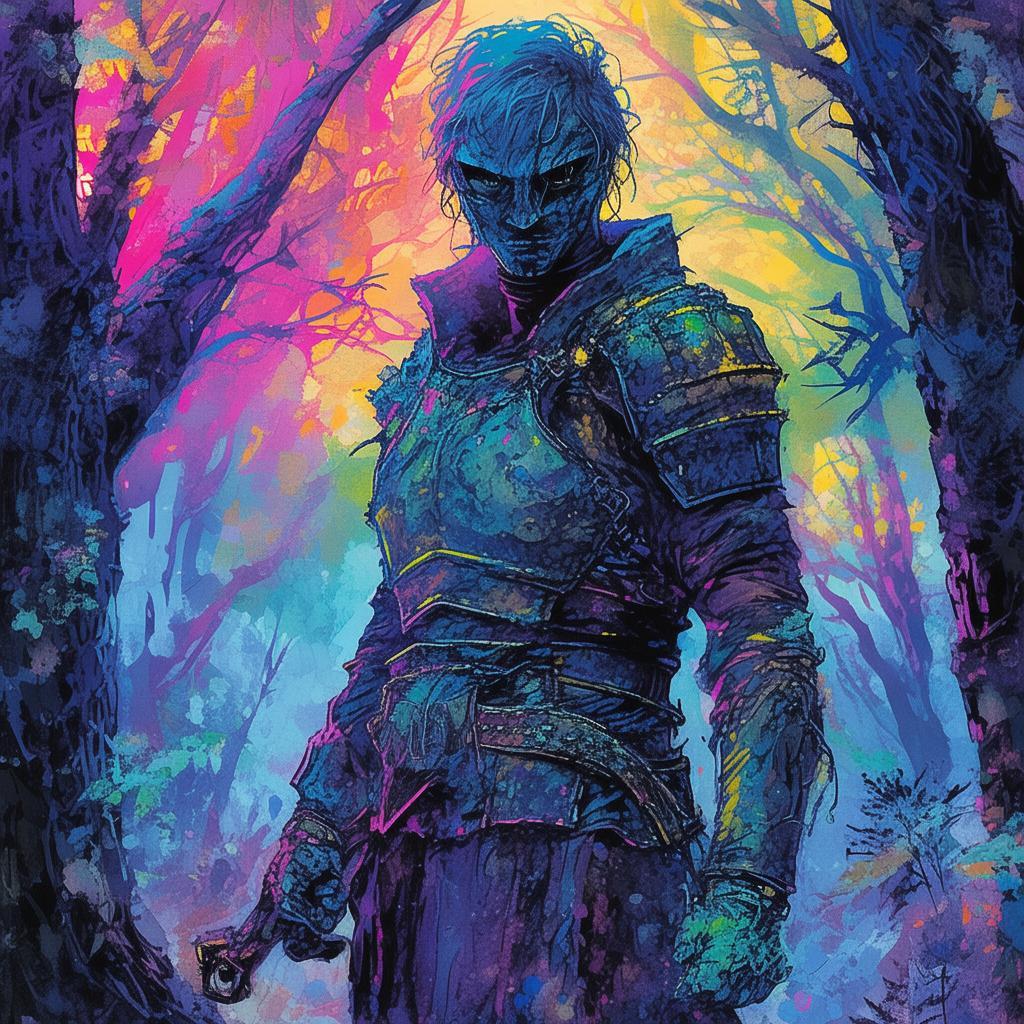The Battle of the Brush: The Art of War A Military Tale with Paintbrushes
In the tranquil village of Jing, nestled among the rolling hills of ancient China, there lived a young painter named Lin. His talent was not merely in capturing the beauty of nature on his canvas but in conveying the essence of the world through his strokes. It was said that Lin's paintings could evoke emotions and movements, as if the very brushstrokes themselves had life.
Lin was not just a painter; he was a student of Sun Tzu, the legendary strategist whose "The Art of War" was a guide to victory on the battlefield. But Lin had taken Sun Tzu's teachings to a new level, blending them with his own artistic genius. He believed that the principles of war could be applied to the art of painting, and that the brush could be as powerful as a sword.
One day, a mysterious letter arrived at Lin's doorstep. It was from a rival painter, Feng, who had heard tales of Lin's abilities. Feng challenged Lin to a duel of wits and artistry, not on the canvas, but on the battlefield. The challenge was simple: the one who could outmaneuver the other would be declared the victor, and their name would be etched into history.

The villagers were abuzz with excitement. A duel between two artists, each wielding the tools of their trade as weapons, was a sight they had never seen. But Lin was not one to be deterred. He accepted the challenge, knowing that this was not just a fight for fame, but a test of his understanding of Sun Tzu's strategies.
The day of the duel arrived. The village square was transformed into a battlefield, with a large canvas laid out in the center. Feng arrived first, his eyes gleaming with the fire of competition. He was a master of the brush, his strokes confident and bold. Lin arrived moments later, his demeanor calm and collected, his brush already in hand.
The duel began with a strategic dance around the canvas. Feng painted a fierce dragon, its scales shimmering with the colors of the sky. Lin, however, painted a simple, serene mountain range, its peaks reaching towards the heavens. Feng's dragon was a thing of power and might, but Lin's mountain was a symbol of strength and endurance.
Feng moved to attack, painting a storm of black clouds that threatened to engulf the canvas. Lin responded with a gentle breeze, painted with such delicate strokes that it seemed to dance across the surface. The storm faded, leaving only the calm mountain range.
The battle continued, with each painter using the elements of nature as their weapons. Feng painted a river that threatened to flood the canvas, but Lin countered with a bridge, a symbol of unity and resilience. Feng painted a lightning bolt, but Lin responded with a clear, starry sky, symbolizing clarity and foresight.
As the duel progressed, it became clear that the true battle was not on the canvas, but in their minds. Feng's art was powerful, but it lacked the depth of thought that Lin's paintings possessed. Lin's strategies were subtle, but they were the result of years of study and practice.
Finally, Feng's defenses crumbled. He painted a final, desperate scene of a fierce battle, but Lin's response was simple and elegant. He painted a single, silent figure standing alone, a sentinel watching over the chaos. The figure was Lin himself, a representation of his own resolve and the strength of his convictions.
Feng looked at his canvas, defeated. "You have won, Lin," he admitted. "Your understanding of The Art of War is unparalleled. You have used the brush not just as a weapon, but as a tool of strategy and thought."
Lin smiled, his brush moving with the grace of a dance. "The true victory is not in the defeat of an opponent, but in the growth of oneself. And in this battle, I have learned that the art of war is not just about victory, but about the journey."
The villagers cheered, their applause a testament to the power of art and the wisdom of Sun Tzu's teachings. Lin had not only won the duel, but he had also won the respect of his fellow artists. And in that moment, he realized that the battlefield of the brush was where he truly belonged.
✨ Original Statement ✨
All articles published on this website (including but not limited to text, images, videos, and other content) are original or authorized for reposting and are protected by relevant laws. Without the explicit written permission of this website, no individual or organization may copy, modify, repost, or use the content for commercial purposes.
If you need to quote or cooperate, please contact this site for authorization. We reserve the right to pursue legal responsibility for any unauthorized use.
Hereby declared.









